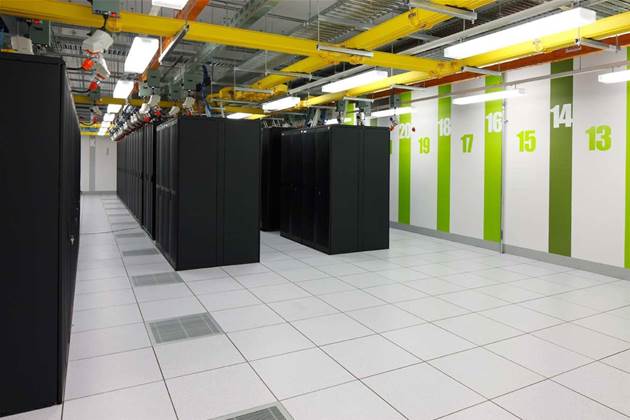The University of Melbourne has acquired its first major round of servers to support the launch of the first node of the OpenStack-based NeCTAR Research Cloud.

NeCTAR is a nationwide $47 million ‘Super Science’ research cloud project funded by the Department of Industry, Innovation, Science, Research and Tertiary Education that will deliver cloud computing infrastructure to facilitate collaborative research and shared compute resources.
The University of Melbourne, which is the lead institution for the project, has selected the open source infrastructure-as-a-service OpenStack cloud platform founded by Rackspace and NASA, because it wanted to build the cloud flexibly and cheaply, Dr. Steven Manos, manager of research services and information technology services at University of Melbourne told iTNews.com.au.
“From the open source world we had options like Open Nebula and Eucalyptus, and we had the usual suspects like Citrix and VMware,” said Manos.
“We needed to do it cheaply and flexibly, and build as big a cloud as possible with as little money as possible. We chose OpenStack because it had a really good developer community.”
On the other hand, Manos said one of the biggest challenges the group has faced is finding OpenStack expertise in Australia.
“We have had to do a lot of the stuff in-house ourselves. We got Rackspace over and they gave a four day course on OpenStack to 16 of us from around the country, which was awesome, but apart from that pretty much everything was self-taught,” he said, adding that the core team attended the recent OpenStack summit to learn from developers in the US.
In building out the first part of the NeCTAR Research Cloud, the University of Melbourne recently selected Xenon under a $700,000 competitive tender to deliver its server requirements, marking the first major hardware spend under the program.
“The most important thing for us was to get as many floating-point operations per second [FLOPS] on commodity kit. We were really looking to maximise the FLOPS per dollar,” said Manos.
University of Melbourne’s NeCTAR cloud contains around 4,000 cores, according to Manos, and is hosted across its main Parkville campus and another at Noble Park about 26 km away.
The service is still in its infancy. To date just 600 researchers from around Australia have logged into the NeCTAR cloud since its February 2012 launch.
However, Manos highlighted it will support a wide array of services, ranging from media wiki instances for collaboration to the Genomics Virtual Laboratory, to Bushfire Connect, a social networking application to keep people connected during the event of a bushfire.
“The Genomics Virtual Laboratory want to be processing hundreds of terabytes worth of genomics sequence data, so they’re going to be firing up hundreds of VMs at a time and running heaps of data through them,” said Manos.
Funding that will go to other NeCTAR participating universities will eventually see 28,000 cores supporting the research cloud, allowing researchers to fire up virtual instances, publish specialised applications and share server resources.
Two reasons Manos said NeCTAR had not chosen public cloud service providers to underpin its program is that, in the case of University of Melbourne, it wanted its compute power to be located close to its BlueGene/Q supercomputer at the university’s Victorian Life Sciences research facility, and because it will be relying on the AARNet network, which is also underpinning NeCTAR’s sister project run by the Queensland University, the 100 petabyte Research Data Storage Infrastructure (RDSI) project.



_(28).jpg&h=140&w=231&c=1&s=0)

.png&h=140&w=231&c=1&s=0)





 iTnews Executive Retreat - Security Leaders Edition
iTnews Executive Retreat - Security Leaders Edition
 Huntress + Eftsure Virtual Event -Fighting A New Frontier of Cyber-Fraud: How Leaders Can Work Together
Huntress + Eftsure Virtual Event -Fighting A New Frontier of Cyber-Fraud: How Leaders Can Work Together
 iTnews Cloud Covered Breakfast Summit
iTnews Cloud Covered Breakfast Summit
 Melbourne Cloud & Datacenter Convention 2026
Melbourne Cloud & Datacenter Convention 2026
 The 2026 iAwards
The 2026 iAwards











_(1).jpg&h=140&w=231&c=1&s=0)



